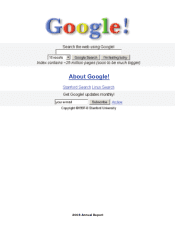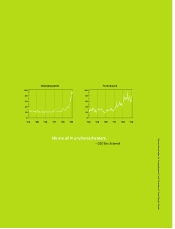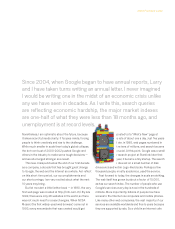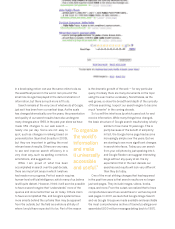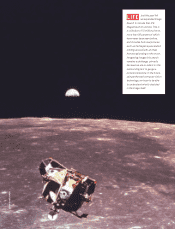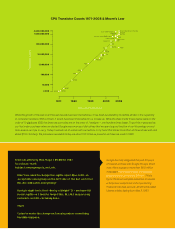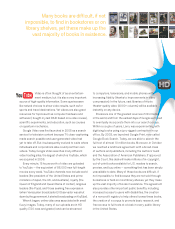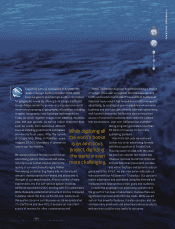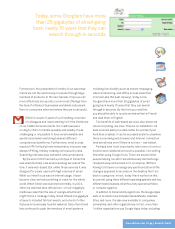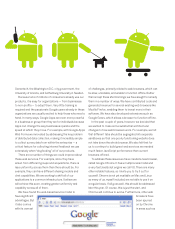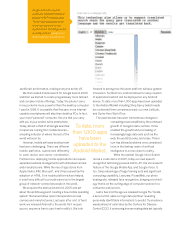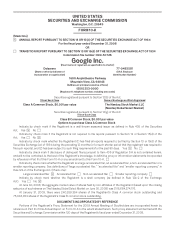Google 2008 Annual Report Download - page 3
Download and view the complete annual report
Please find page 3 of the 2008 Google annual report below. You can navigate through the pages in the report by either clicking on the pages listed below, or by using the keyword search tool below to find specific information within the annual report.
Since 2004, when Google began to have annual reports, Larry
and I have taken turns writing an annual letter. I never imagined
I would be writing one in the midst of an economic crisis unlike
any we have seen in decades. As I write this, search queries
are reflecting economic hardship, the major market indexes
are one-half of what they were less than 18 months ago, and
unemployment is at record levels.
Nonetheless, I am optimistic about the future, because
I believe scarcity breeds clarity: it focuses minds, forcing
people to think creatively and rise to the challenge.
While much smaller in scale than today’s global collapse,
the dot-com bust of 2000-2002 pushed Google and
others in the industry to make some tough decisions —
and we all emerged stronger as a result.
This new crisis punctuates the end of our fi rst decade
as a company, a decade that has brought great change
to Google, the web and the Internet as a whole. As I refl ect
on this short time period, our accomplishments and
our shortcomings, I am very excited about what the next
10 years may bring.
But let me start a little farther back — in 1990, the very
fi rst web page was created at http://info.cern.ch/. By late
1992, there were only 26 websites in the world, so there
was not much need for a search engine. When NCSA
Mosaic (the fi rst widely-used web browser) came out in
1993, every new website that was created would get
posted to its “What’s New” page at
a rate of about one a day. Just fi ve years
later, in 1998, web pages numbered in
the tens of millions, and search became
crucial. At this point, Google was a small
research project at Stanford; later that
year, it became a tiny startup. The search
index sat on a small number of disk
drives enclosed within Lego-like blocks. Perhaps a few
thousand people, mostly academics, used the service.
Fast forward to today, the changes in scale are striking.
The web itself has grown by about a factor of 10,000,
as has our search index. The number of people who use
Google’s services every day is now in the hundreds of
millions. More importantly, billions of people now have
access to the Internet via computers and mobile phones.
Like many other web companies, the vast majority of our
services are available worldwide and free to users because
they are supported by ads. So a child in an Internet cafe
2008 Founders’ Letter
e
ls.
g
e
,
e
p
a
l
t
c
r
y
i
drives enclosed w
i

